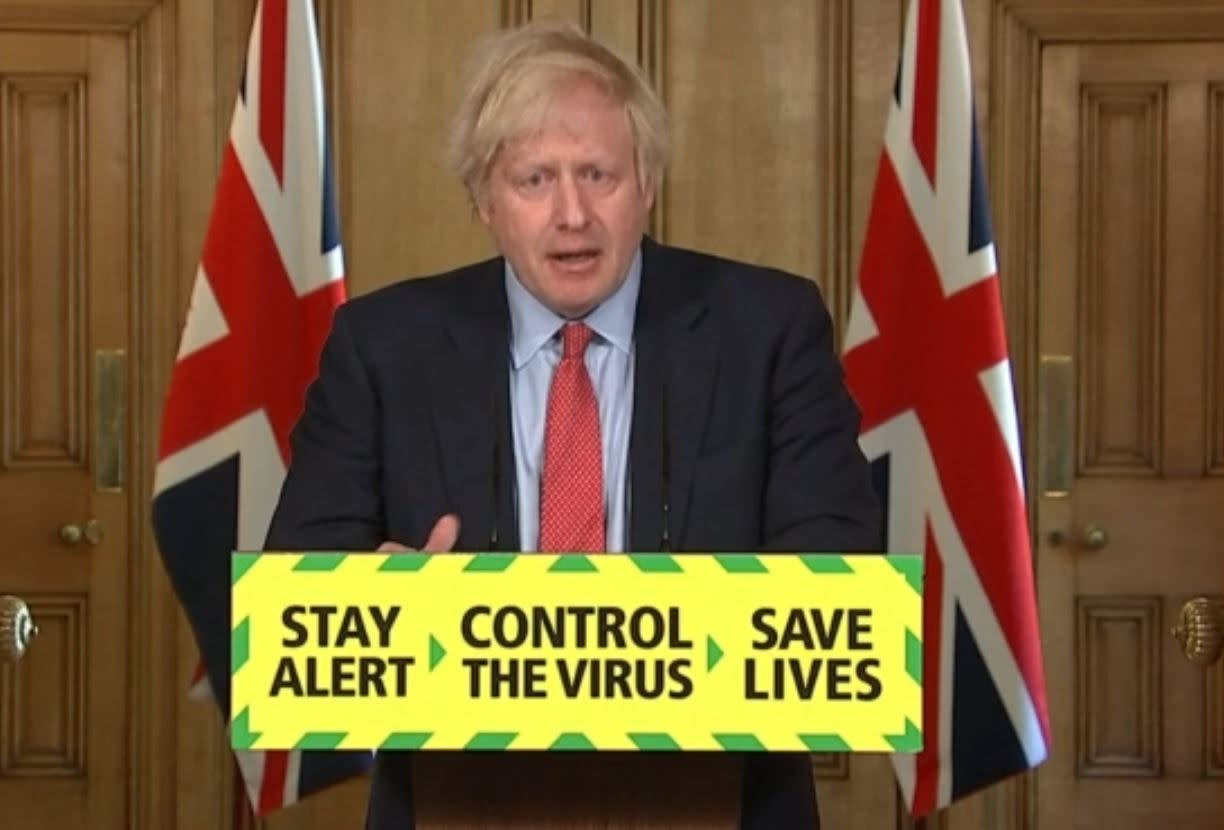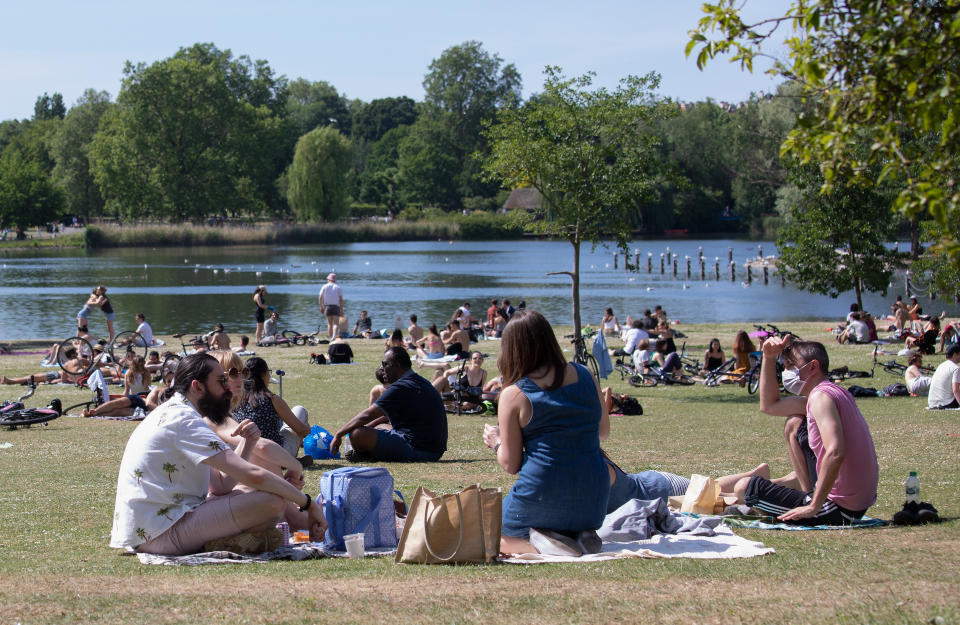Five ways easing of coronavirus lockdown will affect you

Boris Johnson has confirmed elements of the coronavirus lockdown will be lifted in England on Monday.
“We can make all of the changes in a safe way,” the prime minister promised at Thursday’s Downing Street press conference.
However, he also warned that “what we are proposing is still just a fraction of the social interaction each of us would normally enjoy”.
Here are five ways the latest easing of the lockdown will affect you.
1. Groups of six can meet outside
Johnson’s key announcement was that groups of up to six people can meet outdoors from Monday.
He said: “I know the toll the lockdown has taken on families and friends who have been unable to see each other.
“So from Monday, we will allow up to six people to meet outside, provided those from different households continue strictly to observe social distancing rules by staying two metres apart.”
People can currently meet one other person in an outdoor public space, but not in private gardens.
Johnson went on: “There is no difference in the health risk, so we will now allow people to meet in gardens and other private outdoor spaces.
“These changes mean friends and family can start to meet their loved ones, perhaps seeing both parents at once or both grandparents at once.
“I know that for many people, this will be a long-awaited and joyful moment.”

However, he warned people not to go inside the homes of friends and families “unless it is to access the garden”.
He later said people could have a barbecue, provided it is socially distanced.
2. Schools will reopen
Johnson confirmed his plan for schools to reopen on Monday.
He said: “Closing schools has deprived children of their education and as so often, it is the most disadvantaged pupils who risk being hardest hit. On Monday, we will start to put this right in a safe way.”
Reception, Year 1 and Year 6 pupils will return to primary schools, while nurseries and other early years settings will also reopen.
Minutes before the announcement, the National Education Union (NEU) called for Johnson to “draw back” from the plans, citing an Independent SAGE report suggesting reopening schools could be unsafe.
3. Shops will reopen
Outdoor shops and car showrooms will also reopen on Monday, Johnson confirmed.
He said social distancing is “generally easier” in these settings.
This will be followed on 15 June by the reopening of non-essential retail shops, provided the government’s five safety tests are still being met and shops are “COVID-secure”.
4. Social distancing ‘strictly’ remains
The PM warned people must continue to stay two metres apart from those in different households at all times.
He said: “I must stress that to control the virus, everyone needs to stay alert, act responsibly, strictly observe social distancing rules and stay two metres apart from those you do not live with.
“Minimising contact with others is still the best way to prevent transmission.”
He also urged people to avoid seeing others “from too many households in quick succession”.
5. Vulnerable people must continue shielding
Johnson said clinically extremely vulnerable people – those with specific medical conditions that put them at greater risk of severe illness from COVID-19 – should continue staying at home.
The PM said “I do understand how difficult this has been for you” and thanked people for their efforts as they “have helped the NHS to cope”.
Johnson said the government was “looking carefully at how we can make your life easier” but did not share any more details.
Clinically extremely vulnerable people include solid organ transplant recipients; people with specific cancers; people with severe respiratory conditions, people with rare diseases that significantly increase the risk of infections; people on immunosuppression therapies sufficient to significantly increase risk of infection; and women who are pregnant with significant heart disease.
Coronavirus: what happened today
Click here to sign up to the latest news, advice and information with our daily Catch-up newsletter
Read more about COVID-19
How to get a coronavirus test if you have symptoms
What you can and can’t do under lockdown rules
In pictures: How UK school classrooms could look in new normal
How public transport could look after lockdown
How our public spaces will change in the future
Help and advice
Read the full list of official FAQs here
10 tips from the NHS to help deal with anxiety
What to do if you think you have symptoms
How to get help if you've been furloughed

 Yahoo News
Yahoo News 

